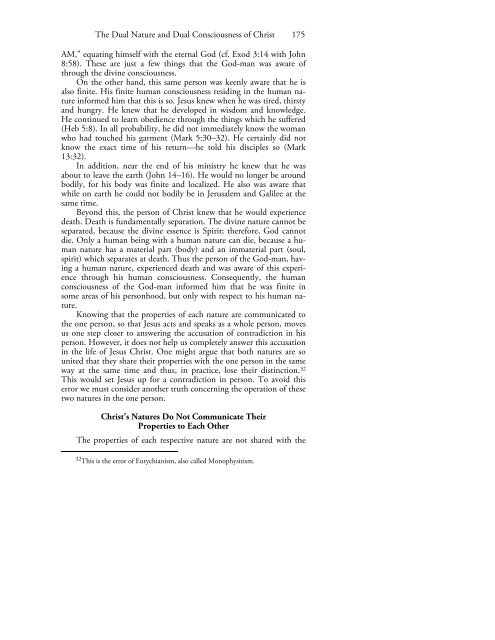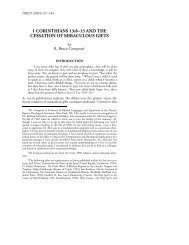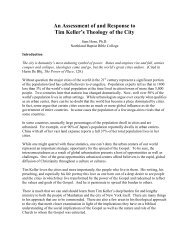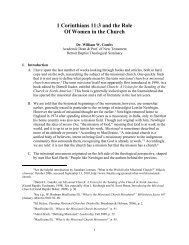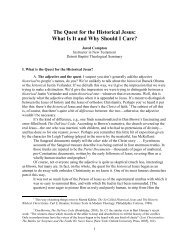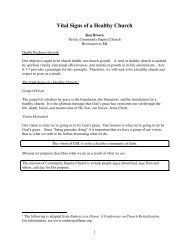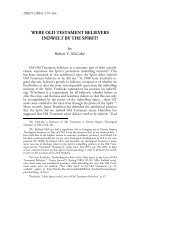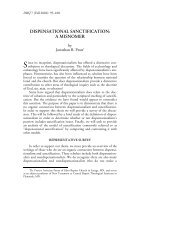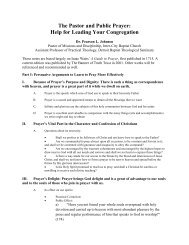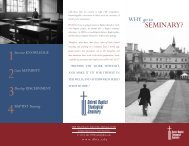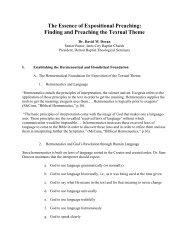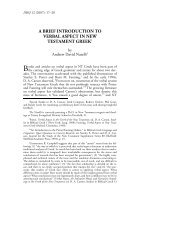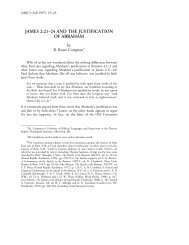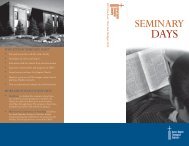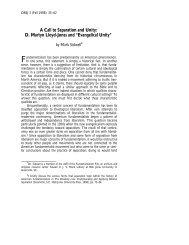Samuel A. Dawson - Detroit Baptist Theological Seminary
Samuel A. Dawson - Detroit Baptist Theological Seminary
Samuel A. Dawson - Detroit Baptist Theological Seminary
- No tags were found...
You also want an ePaper? Increase the reach of your titles
YUMPU automatically turns print PDFs into web optimized ePapers that Google loves.
The Dual Nature and Dual Consciousness of Christ 175AM,” equating himself with the eternal God (cf. Exod 3:14 with John8:58). These are just a few things that the God-man was aware ofthrough the divine consciousness.On the other hand, this same person was keenly aware that he isalso finite. His finite human consciousness residing in the human natureinformed him that this is so. Jesus knew when he was tired, thirstyand hungry. He knew that he developed in wisdom and knowledge.He continued to learn obedience through the things which he suffered(Heb 5:8). In all probability, he did not immediately know the womanwho had touched his garment (Mark 5:30–32). He certainly did notknow the exact time of his return—he told his disciples so (Mark13:32).In addition, near the end of his ministry he knew that he wasabout to leave the earth (John 14–16). He would no longer be aroundbodily, for his body was finite and localized. He also was aware thatwhile on earth he could not bodily be in Jerusalem and Galilee at thesame time.Beyond this, the person of Christ knew that he would experiencedeath. Death is fundamentally separation. The divine nature cannot beseparated, because the divine essence is Spirit; therefore, God cannotdie. Only a human being with a human nature can die, because a humannature has a material part (body) and an immaterial part (soul,spirit) which separates at death. Thus the person of the God-man, havinga human nature, experienced death and was aware of this experiencethrough his human consciousness. Consequently, the humanconsciousness of the God-man informed him that he was finite insome areas of his personhood, but only with respect to his human nature.Knowing that the properties of each nature are communicated tothe one person, so that Jesus acts and speaks as a whole person, movesus one step closer to answering the accusation of contradiction in hisperson. However, it does not help us completely answer this accusationin the life of Jesus Christ. One might argue that both natures are sounited that they share their properties with the one person in the sameway at the same time and thus, in practice, lose their distinction. 32This would set Jesus up for a contradiction in person. To avoid thiserror we must consider another truth concerning the operation of thesetwo natures in the one person.Christ’s Natures Do Not Communicate TheirProperties to Each OtherThe properties of each respective nature are not shared with the32 This is the error of Eutychianism, also called Monophysitism.


